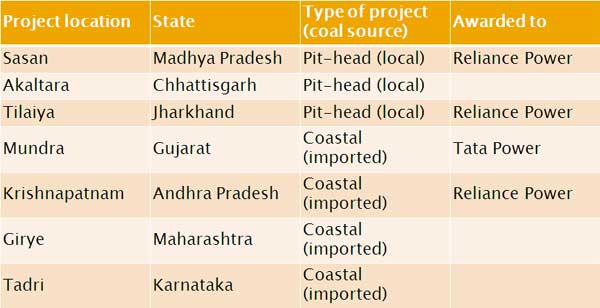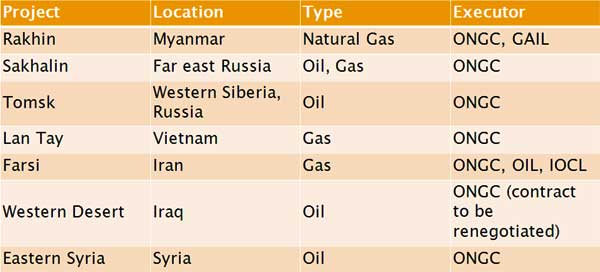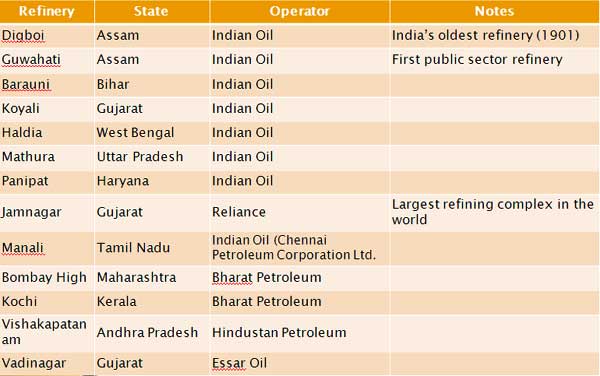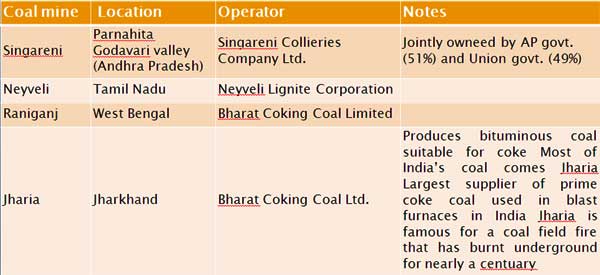(HOT) UPSC Current Affairs 2025 PDF
NEW! The Gist (NOV-2025) | E-BOOKS
(IGP) GS Paper 1 - India & World Geography - "Conventional Energy in India"
Integrated Guidance Programme of General Studies for IAS (Pre)
Subject - India & World Geography
Chapter :Conventional Energy in India
Overview:
-
Conventional sources of energy contribute about 67% of India’s power production.
-
Conventional sources include coal, oil and natural gas.
-
Thermal energy (coal, oil, gas) is the largest energy source in India.
Coal Energy in India
-
India has the fourth largest reserves of coal in the world (behind USA, Russia and China).
-
India is the world’s third largest consumer and fourth largest producer of coal.
-
Coal mining in India began at the initiative of Governor General Warren Hastings at Raniganj (West Bengal) in 1774.
-
The East India Company set up M/s Sumner and Heatly for coal mining purpose.
-
Coal mining was nationalised in 1971 (coking coal) and 1973 (non-coking coal). Only the Tata Iron and Steel Company and Indian Iron and Steel Company were exempt
-
Coal in India is under the purview of the Ministry of Coal
For Detail
Description, Analysis and More MCQs of the Chapter Buy this Study Notes:
Important Coal Mines:
Ultra Mega Power Projects:
- Scheme launched by the government to meet National Electricity Policy stipulation of ‘Power for All by 2012.
- The Ultra Mega Power Projects (UMPP) scheme envisions adding 100,000 MW of installed capacity by 2012.
- This involves construction of super large power plants each of capacity 4000 MW or more. The UMPP power plants will use coal as fuel.
- The nodal agency for implementing the UMPP scheme is the Power Finance Corporation Ltd.
List of UMPP Projects:

Oil And Natural Gas In India:
- India has total crude oil reserves of 775 million metric tonnes and natural gas reserves of 1074 billion cubic meters
- The primary sources of natural gas in India are the offshore platforms on the western coast. Other sources include onshore fields in Assam, Andhra Pradesh, Gujarat, and lesser quantities in Tamil Nadu, Tripura and Rajasthan
- The largest oil fields in India are the Bombay High offshore fields. Bombay High contributes about 38% of domestic production and 14% of national consumption
- The largest natural gas reserves have been found to be in the Krishna-Godavari basin. This discovery was made by Reliance Industries in 2002
- The largest petroleum refinery in India is located at Jamnagar (Gurarat). It is owned by Reliance Petroleum Ltd.
- The oldest petroleum refinery is at Guwahati. It was established on 1st January 1962 with assistance from Romania
- Part of the natural gas produced in Maharashtra is fed into the HBJ national pipeline. Gas from other sources is usually used locally
- The primary markets for petroleum and natural gas in India include power generation, industrial and domestic fuels, tea plantations, and non-energy applications such as manufacture of fertilizers and petrochemicals
- The first discovery of oil in India was in Digboi, Assam in 1889
- Oil and natural gas comes under the purview of the Ministry of Petroleum and Natural Gas
Strategic Petroleum Reserves:
- Government has decided to set up 5 million metric tonnes of crude oil reserves to ensure energy security. These strategic reserves will be in addition to existing storages at the oil companies.
- These storage facilities are to be established at Mangalore, Vishakapatnam and Padam (near Udipi, Karnataka).
- Proposed strategic reserves to be under Indian Strategic Petroleum Reserves Ltd (ISPRL), a Special Purpose Vehicle under the Oil Industry Development Board.
- The proposed sites are located in the east and west coasts so that they are readily accessible to refineries through marine route.
- The strategic reserves are to be in underground rock caverns, which are considered to be the safest means of storing hydrocarbons.
Important Foreign Exploration & Production Projects of Indian Companies:

Petroleum Refinement:
- There are three public sector enterprises and two private entrerprises in petroleum refinement: Indian Oil, Bharat Petroleum, Hindustan Petroleum, Reliance Petroleum and Essar Oil.
- Indian Oil Corporation Ltd. (IOCL) is the largest in pertroleum refinement and distribution. It accounts for 47% of pertoleum products and 40% of refining capacity.
- The IOCL is also the largest commercial enterprise in India.

For Detail Description, Analysis and More MCQs of the Chapter Buy this Study Notes:

